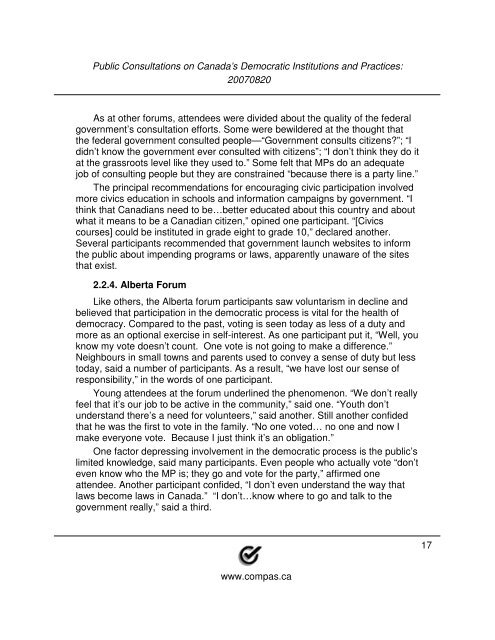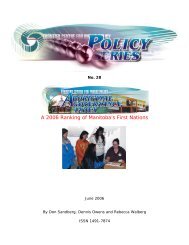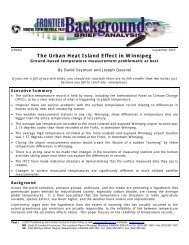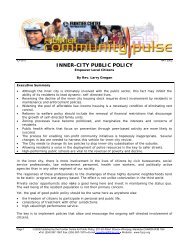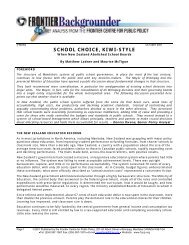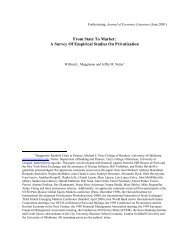English version (PDF)
Create successful ePaper yourself
Turn your PDF publications into a flip-book with our unique Google optimized e-Paper software.
Public Consultations on Canada’s Democratic Institutions and Practices:<br />
20070820<br />
As at other forums, attendees were divided about the quality of the federal<br />
government’s consultation efforts. Some were bewildered at the thought that<br />
the federal government consulted people—“Government consults citizens?”; “I<br />
didn’t know the government ever consulted with citizens”; “I don’t think they do it<br />
at the grassroots level like they used to.” Some felt that MPs do an adequate<br />
job of consulting people but they are constrained “because there is a party line.”<br />
The principal recommendations for encouraging civic participation involved<br />
more civics education in schools and information campaigns by government. “I<br />
think that Canadians need to be…better educated about this country and about<br />
what it means to be a Canadian citizen,” opined one participant. “[Civics<br />
courses] could be instituted in grade eight to grade 10,” declared another.<br />
Several participants recommended that government launch websites to inform<br />
the public about impending programs or laws, apparently unaware of the sites<br />
that exist.<br />
2.2.4. Alberta Forum<br />
Like others, the Alberta forum participants saw voluntarism in decline and<br />
believed that participation in the democratic process is vital for the health of<br />
democracy. Compared to the past, voting is seen today as less of a duty and<br />
more as an optional exercise in self-interest. As one participant put it, “Well, you<br />
know my vote doesn’t count. One vote is not going to make a difference.”<br />
Neighbours in small towns and parents used to convey a sense of duty but less<br />
today, said a number of participants. As a result, “we have lost our sense of<br />
responsibility,” in the words of one participant.<br />
Young attendees at the forum underlined the phenomenon. “We don’t really<br />
feel that it’s our job to be active in the community,” said one. “Youth don’t<br />
understand there’s a need for volunteers,” said another. Still another confided<br />
that he was the first to vote in the family. “No one voted… no one and now I<br />
make everyone vote. Because I just think it’s an obligation.”<br />
One factor depressing involvement in the democratic process is the public’s<br />
limited knowledge, said many participants. Even people who actually vote “don’t<br />
even know who the MP is; they go and vote for the party,” affirmed one<br />
attendee. Another participant confided, “I don’t even understand the way that<br />
laws become laws in Canada.” “I don’t…know where to go and talk to the<br />
government really,” said a third.<br />
17<br />
www.compas.ca


